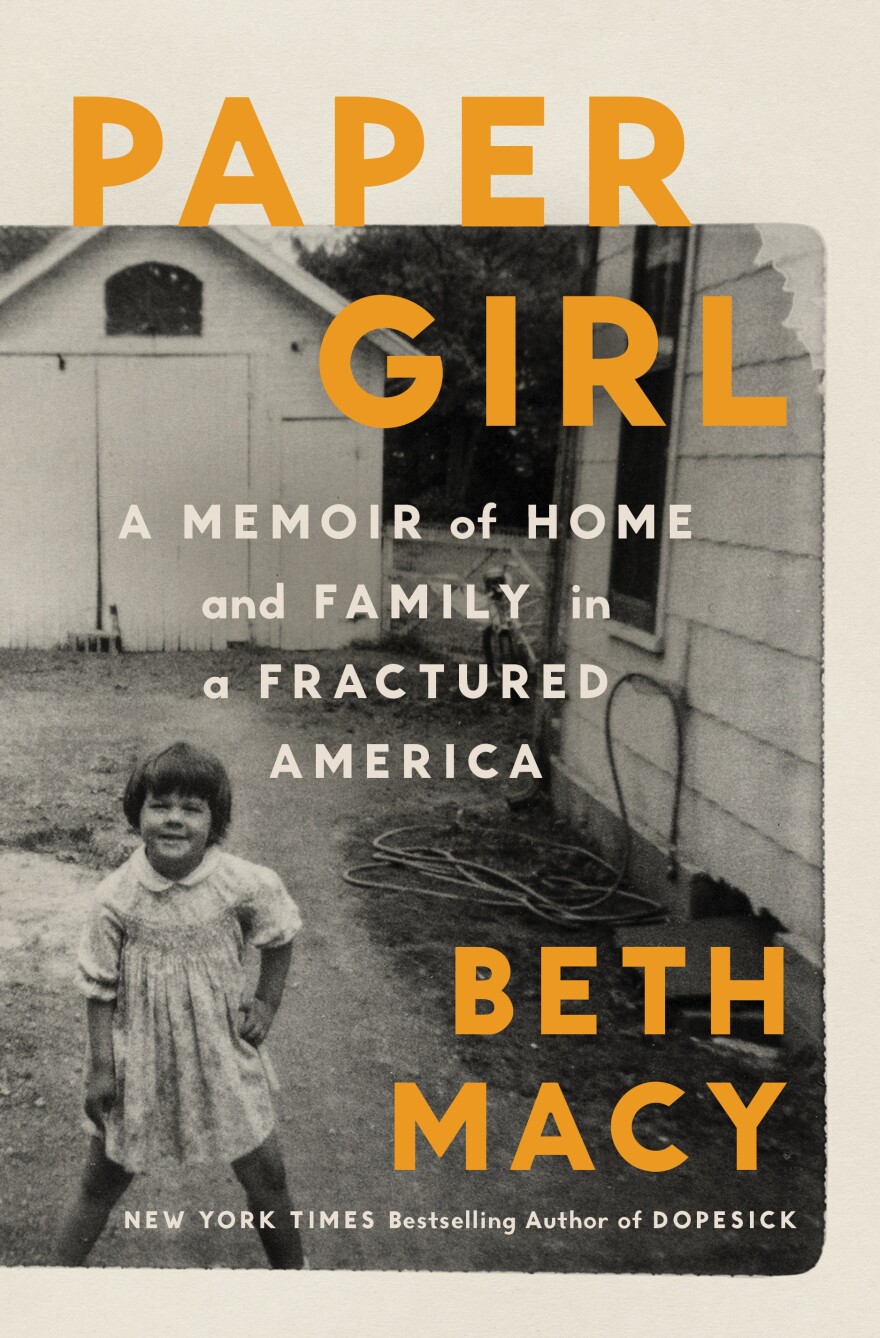In her time as a newspaper columnist, Roanoke author Beth Macy used to write about her family.
She was often asked to put those memories into a book. In her time for the Roanoke Times (from 1989 until 2014), Macy would do a column on ‘outsiders and underdogs’ that included such material.
During that time, she was also asked to do a memoir. Macy said she didn’t know how to do that.
But four books later, and upon frequent visits to her hometown of Urbana, Ohio in 2020, around the time of her mother’s death, the acclaimed author of Dopesick and Factory Man said something changed.
Macy found an Urbana very different from the one where she was raised. “I decided to go back to my hometown to try to figure out if it had changed, or if I’d been the one to change,” she explained.
Her family grew up poor, and was the first to attend college, relying on Pell Grants, among the subjects she delves into in Paper Girl: A Memoir of Home, and Family in a Fractured America.

“My whole life, I knew that people with money weren’t necessarily any smarter than me,” Macy said. Many years later, she was teaching a lot of Pell Grant recipients at Virginia Western Community College.
“There was really a lot of discrimination against them. I didn’t realize that – with tuition going up so much, that the government basically stopped funding higher ed right at the moment where they should have been as jobs were going away.”
Paper Girl gets its title from Macy’s time delivering the newspaper as in her neighborhood as a child, getting to know different kinds of people.
Urbana was once a factory town, but has seen the decline in manufacturing over the decades. She also worked for the Urbana Daily Citizen during college, but now the paper lacks the staff to even cover the local city council.
“People don’t know what’s going on with their neighbors,” Macy said, which has led to many in her hometown, including friends and family, to latch onto conspiracy theories.
“Then I started hearing things like – the factories can’t get people to show up for work,” she said. “Kids weren’t showing up to school. And having written two books about the opioid crisis, I was very familiar with that, but not in the context of my hometown.”
Macy writes about a portion of the Urbana population that refuses to send their kids to school, spending time with a local truancy officer while making the rounds in the community.
The relationships she focuses on in the book include with her older sister, Cookie.
"(She) genuinely believes that gay people are an abomination," Macy said. "I have two queer kids, and that's a hard thing to get past." But Macy said Cookie still has pictures of them on the bulletin board at home, saying she loves them.
She also talks about her brother Tim's distrust of the media within her family, including when Macy contributed articles to The New York Times and Washington Post.
But ultimately, Macy said Paper Girl is a book about love.
"Even in her early stages of dementia, (her mom) would say, why don't you write something happy?" she explained. "I always try to have love centered in my books. As I write about my mom, who I loved more than any human on the planet, I think I have written a love story - and it's about her."
On Thursday, October 16, Macy appears at an event hosted by the Virginia Western Community College Educational Foundation, to benefit its Great Expectations program for foster youth. It takes place at the Roanoke City Market Building.




